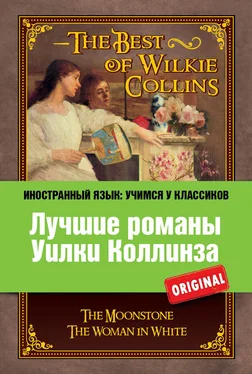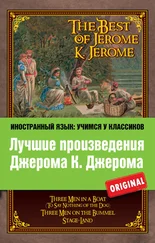the Flood– the biblical flood described in the Old Testa-ment; God determined to punish people for corruption and told the righteous man Noah to build the ark and to take into it his family and all species of animals.
phial– a small bottle for liquid medicine
Pagan– pre-Christian or not following the teachings of the world’s major religions
St. Paul’s Cathedral– the cathedral of the Anglican Bish-op of London in central London, built in 17–18th centuries by Sir Christopher Wren (1632–1723), an outstanding English architect; the first cathedral dedicated to St. Paul was build there in 604 AD.
the Evil One– the Devil
apostotise– to give up some religion or faith
ottoman– a long bench without back and with cushions
annals– a written record of events year by year
apostosy– giving up one’s faith or religion
See Betteredge’s Narrative, chapter viii.
rector– in Anglican Church, a clergyman in charge of a par-ish
clerical– related to the clergy
custaway– a shipwrecked person
Brighton– a town in Sussex on the English Channel, a sea-side resort 82 km south of London
Grand Lama of Tibet– Dalai Lama, head of the Tibetan Buddhists, spiritual ruler of Tibet; the tradition of reincarnate lamas goes back to the 14th century.
the Serpent– a mythological creature that, according to the Bible, tempted Eve to taste the fruit from the tree of knowl-edge (the tree of Good and Evil) in the Garden of Eden
evangelising– missionary, related to the preaching of the teachings of the Gospel
the mother Eve – in Judaism, Christianity and Islam, the first woman created by God from Adam’s rib
jilt– give smb. up after promising to marry
Manna in wilderness– in the Bible, the food that helped the Hebrews to survive during the 40 years in the desert after their Exodus from Egypt; they gathered the substance called manna to prepare bread.
Codicilis– a Codicil is an appendix to a will, usually changing or modifying some part of it
proctor– an official whose duty is to supervise certain legal cases (divorce, inheritance, etc.)
Doctors’ Commons– till 1857, the headquarters of Doctors of Civil Law who managed probate law
mesmerising– hypnotising; the effect was named after Franz Mesmer (1734–1815) who was the first to use hypnotic trance in medical treatment
Hindustani– the official language of India; it began to de-velop in the 13th century in Delhi as a means of communication of different ethnic groups, and in the 19th century the British authorities in India initiated its standardization.
Portland Place– a wide street in central London where some embassies are located
Apparition– a vision of a saint, or a ghost or spirit
grog– an alcoholic drink (spirits mixed with water)
port– strong, sweet Portuguese wine
sherry– fortified wine, usually of Spain, Cyprus, etc.
NOTE: by Franklin Blake. – The writer is entirely mistaken, poor creature. I never noticed her. My intention was certainly to have taken a turn in the shrubbery. But, remembering at the same moment that my aunt might wish to see me, after my return from the railway, I altered my mind, and went into the house
had got the whip-hand of you– to have the whip-hand over (of) smb. – to master smb., to exercise complete control over smb.
credentials– papers proving that a person is what he claims to be
Jesuits– members of the Society of Jesus, a Roman Catholic religious order, founded in Paris in 1534 for educational, chari-table and missionary purposes
to tell dead against smb. – to tell absolutely, completely against smb.
Dorking– a town southwest of London famous for its beauti-ful nature
Sybarite– an idle person who enjoys life, luxury, etc.; the word derives from Sybaris, a town in Italy at the times of the Greek Empire
Dover– a seaport on the Strait of Dover, in the county of Kent; the first settlement dates back to pre-Roman times.
Ostend– a Belgian city on the North Sea coast, known since the 9th century first as a fishing village, then a fort and later a commercial centre
delirium– mental excitement during illness (usually fever) accompanied by incoherent senseless talk
laudanum– a sedative made from opium
Dr. Carpenter– William Benjamin Carpenter (1813–1885), the author of a number of fundamental books on physiology
Dr. Elliotson– John Elliotson (1791–1868), the author of ‘Human Physiology’ (1840); he combined ordinary medical treatment with mesmerism and clairvoyance.
Mr. Combe– George Combe (1788–1858), a psychiatrist who studied mental abilities and traits of character
Confessions of an English Opium-Eater– a book by Thomas De Quincey (1785–1859), first published in 1811; De Quincey used opium for medical purposes and became addicted to it.
the Antipodes– two places on the opposite sides, or two things or persons with opposite qualities
mesmerism– a sort of hypnotism
by jingo– an exclamation of surprise (out of use now)
Bedlam– Bethlem Royal Hospital for mentally ill patients, first mentioned in 1329
head full of maggots– to have maggots in one’s head = to have a strange fancy or idea
caught a Tartar– had to deal with a troublesome person
Читать дальше
Конец ознакомительного отрывка
Купить книгу












